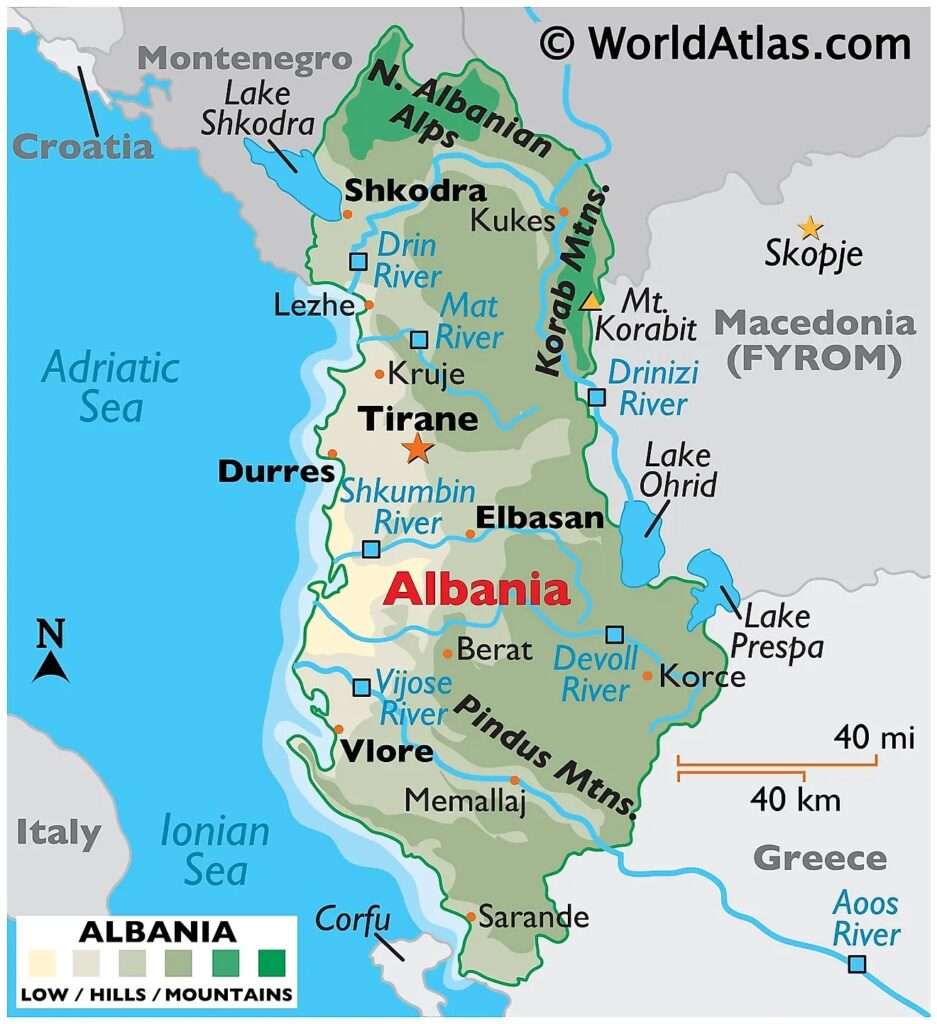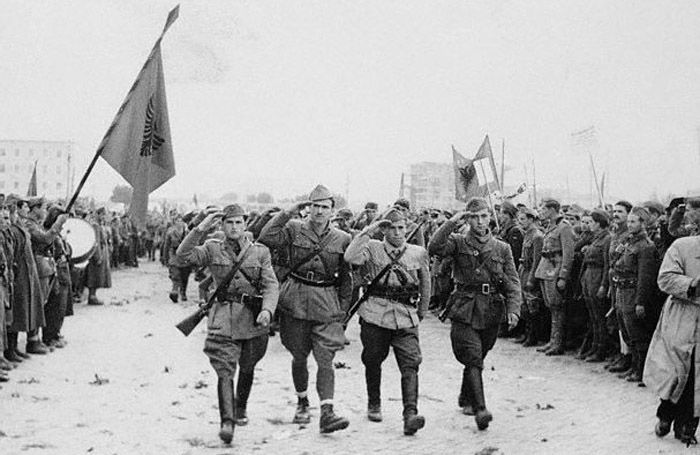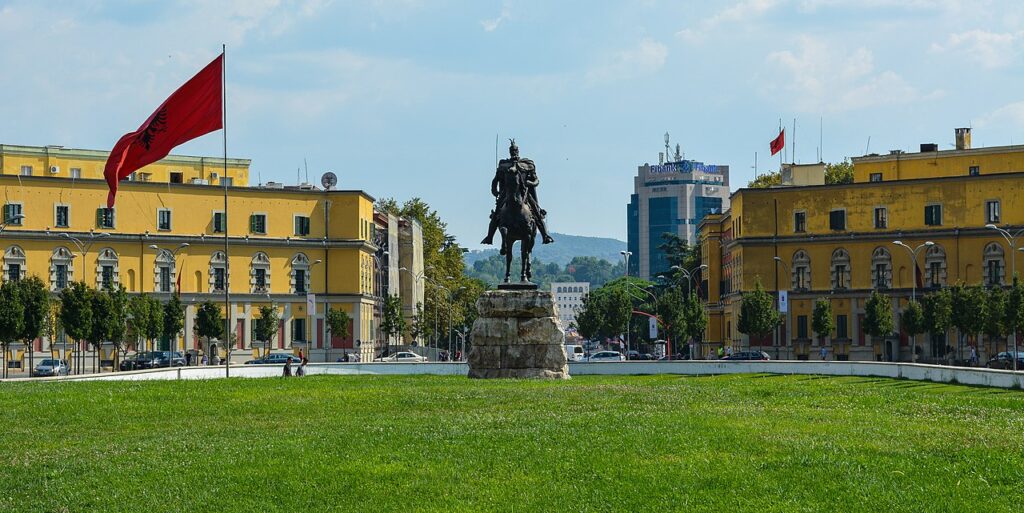Albania
Grades 7+
From Dr. G.:
My wife is Thai, and for a time, when we lived in Europe, she could not explore countries there other than Germany, where I was teaching. (1)
Except, by some fluke, Thai citizens thankfully could vacation in Albania without a visa. (1)
 It’s a beautiful country and a fun one. In three hours, our car was hit by a donkey cart, we pantingly climbed a 15-story tower for a sweeping view of the ocean and forests, and I was suddenly bit by a pelican. A drive of a couple hours takes you from the sea to mountains that require four-wheel drive to navigate the dizzyingly circuitous roads between the trees. (3)
It’s a beautiful country and a fun one. In three hours, our car was hit by a donkey cart, we pantingly climbed a 15-story tower for a sweeping view of the ocean and forests, and I was suddenly bit by a pelican. A drive of a couple hours takes you from the sea to mountains that require four-wheel drive to navigate the dizzyingly circuitous roads between the trees. (3)
It’s cheap. We went for a snack at the nearest restaurant to the main airport. The menu included spaghetti as an appetizer. Not being very hungry, I ordered it. A large plate soon arrived, heaped with noodles. The cost? $2. (2)
∗
Now known for its vibrant and amazingly colorful buildings, Tirana, Albania’s capital city, used to be painted a dull, communist-gray. (2)
 The communist era in Albania, from the end of WWII to the 1990s, was an extremely dark period in the country’s history. One of the most visible legacies of the communist era in Albania were the gray, concrete buildings dotting Tirana, the capital. These grim buildings were a feature of the communist system. (1)
The communist era in Albania, from the end of WWII to the 1990s, was an extremely dark period in the country’s history. One of the most visible legacies of the communist era in Albania were the gray, concrete buildings dotting Tirana, the capital. These grim buildings were a feature of the communist system. (1)
But things changed as Edi Rama, now the prime minister, took office as the mayor of Tirana in the 2000s. An artist painter by trade, he decided to paint the drab buildings in an array of bright colors as a way of happily celebrating the country’s newfound freedom. (2)
To quickly re-inject life into the city, Rama invited street artists who painted the city’s facades in bright, bold colors. Today, the city’s facades feature murals, geometric patterns, and abstract art. This project has helped to transform the city, making it a much more inviting place. (3)
 The very colorful buildings symbolize a radical transition from the oppression of the communist era to the rainbow palette of democracy. (1)
The very colorful buildings symbolize a radical transition from the oppression of the communist era to the rainbow palette of democracy. (1)
Albania has stayed true to itself, despite the communists’ iron grip and isolation. Or as Albanians would say, “Besa!”
Rooted in a long-standing tradition of honor, hospitality and loyalty, Besa is an Albanian cultural concept. The literal meaning of Besa is “to keep the promise.” Besa means to be indelibly honest and loyal even in tough situations. It is a code of ethics that binds all Albanians together regardless of religion or ethnicity. It is also a code of conduct deeply ingrained in Albanian culture, and it is seen as a sacred obligation that must be upheld at all costs. (4)
Besa!
Albania Activity 1
The essay contains 20 adverbs. How many there are in each paragraph is indicated in parenthesis.
- Locate the 20 adverbs.
- At least 13 of the adverbs can be eliminated without changing the sentence’s meaning. Find them and delete them.